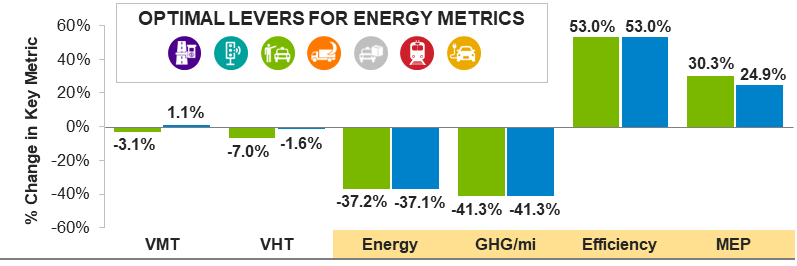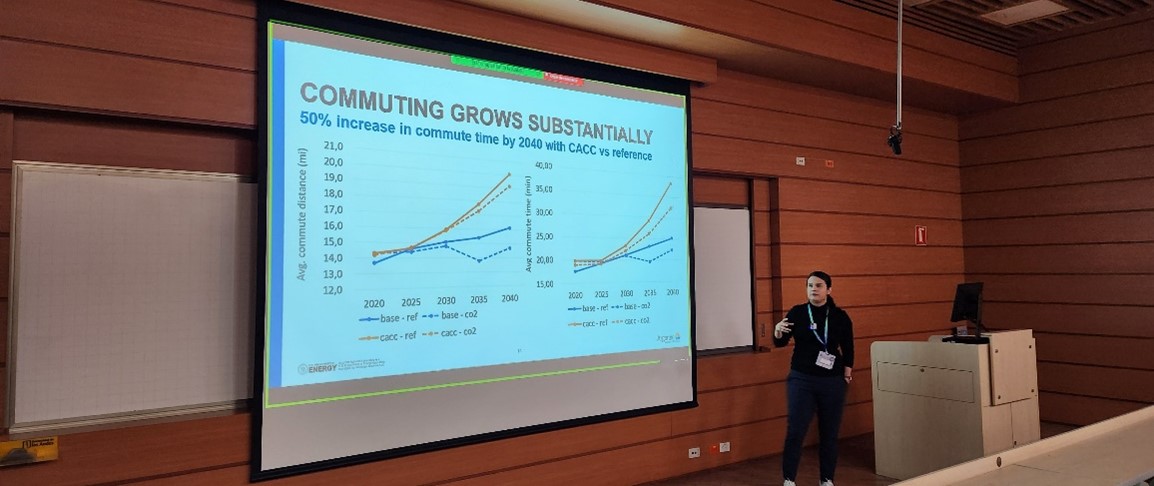WSTLUR 2024
VMS staff share their latest research on land use, transportation and the use of POLARIS at the 2024 WSTLUR Conference
The 2024 World Symposium on Transport and Land Use Research (WSTLUR) in Bogotá, Colombia, hosted by Universidad de Los Andes, convened experts to explore how innovation and technology are reshaping urban landscapes and transportation systems post-pandemic. Discussions focused on integrating technology into urban environments, the intersection of land use and transport policies to promote environmental sustainability, and sustainable transport solutions in the Global South. Significant advances in land-use transport integration, modeling of underlying personal and household behavior relating to long term decision making, and development of new metrics were presented by leading researchers from around the world.
Argonne National Laboratory team had two presentations. Joshua Auld presented an analysis on mobility, technology, and demand scenarios in the Chicago region using POLARIS. The findings showcased how combinations of technology deployments and policy interventions could reduce travel times and increase system efficiency by integrating congestion pricing, transit expansion, and advanced traffic management strategies. A key highlight of the research was the identification of critical interactions between different strategies to identify either synergies or interference effects, and the development of a framework to allow stakeholders to prioritize and weight different metrics when identifying optimal outcomes. In fact, in many cases the optimal combination of strategies for a given metric could include some strategies which in isolation produce a negative impact – an example of the was the TNC policy lever increasing VHT on its own, but also being necessary to achieve the overall optimum for the VHT metric. In the end, pathways using a combination of electric vehicle deployment combined with other near-term mobility solutions were identified to increase travel energy efficiency by 53% as shown below.
 Identifying combinations of strategies to achieve optimal energy related metrics
Identifying combinations of strategies to achieve optimal energy related metrics
Natalia Zuniga presented a study on mitigating induced demand from connected and automated vehicles (CACC) in Austin, Texas. The multi-model approach using GCAM, POLARIS, and UrbanSim illustrated how vehicle automation could affect energy consumption and emissions over the next two decades. The research emphasized the importance of aligning technological advancements with innovative policies to maximize efficiency and sustainability benefits. Innovative policies including energy pricing and vehicle electrification incentives could help reduce the impact of vehicle automation by reducing fuel consumption up to 22%. Additionally, Advances in vehicle technology research and development could lead to a decline of 10% energy use in the long-term.
 Natalia Zuniga presenting on the land use, energy and mobility impacts of CACC and carbon policy
Natalia Zuniga presenting on the land use, energy and mobility impacts of CACC and carbon policy
Overall, the symposium underscored the critical need for interdisciplinary collaboration and data-driven approaches to tackle urban transport challenges. It highlighted how advancements in technology, paired with robust policy frameworks, can pave the way for sustainable urban mobility solutions globally. This approach aims to address unique regional challenges while striving for inclusive and environmentally friendly transportation networks. For more information on the large-scale Chicago study please see the publication here: https://arxiv.org/pdf/2403.14669